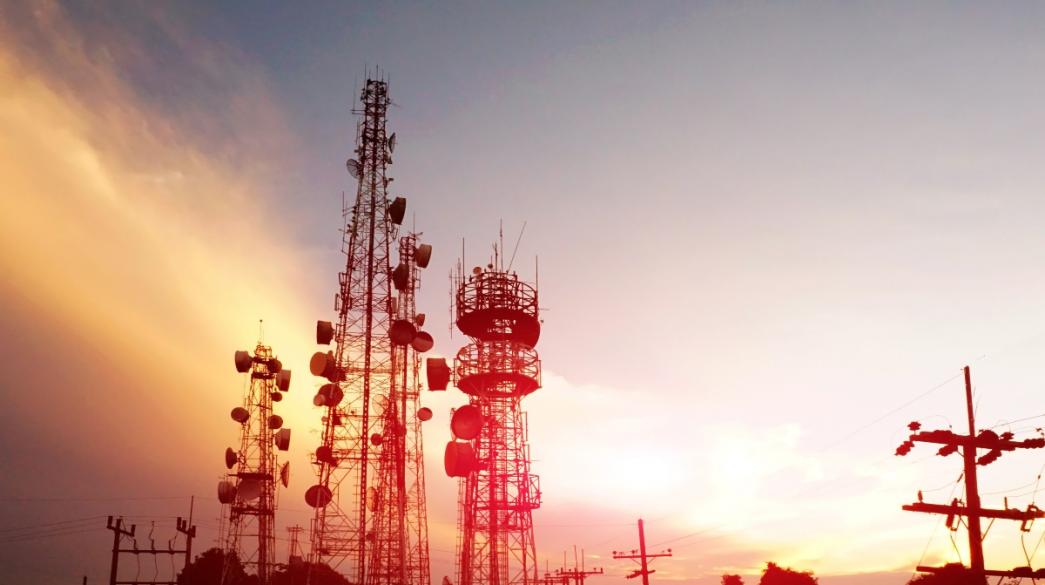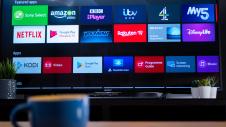Armed with bundled packages, investing in network development and new technologies, and the introduction of new products and services, the traditional telecommunications providers are “fortifying” themselves against the new landscape being shaped by the arrival of new players.
As PPC and Elon Musk’s Starlink rapidly expand their presence in the Greek market, Cosmote Telekom, Nova, and Vodafone have rolled up their sleeves to safeguard their share of the €5 billion pie that shows no signs of growing.
In contrast to the prevailing market trend that favors bundled packages, the new players are going against the tide, offering primarily internet-only services at very high speeds, with prices reaching even half of those charged by the established telecom providers.
The traditional players are closely monitoring PPC’s “experiment,” waiting to see if there is indeed a significant portion of consumers willing to choose only low-cost, high-speed internet, abandoning the benefits of “all-in-one” bundles. Although the providers claim to be well “fortified,” should PPC’s venture prove successful, they may adapt their commercial strategy while continuing their investments in fiber optics.
The new players reshaping the landscape
PPC made a spectacular entry into the retail telecommunications market by offering internet-only services with very high speeds and low prices, with customer response proving impressive according to PPC CEO G. Stassis, who made statements last week.
So far, PPC — which has also entered the wholesale telecom market, driving prices down by 20% — has invested nearly €250 million, with plans to allocate up to €700 million in the coming years, aiming to reach 3.5 million lines by the end of 2027.
According to Mr. Stassis, within just the first 40 days of offering its new services, there were 4,000 connection requests. PPC is rapidly expanding its FTTH network, having already reached 1.3 million lines and targeting 1.5 million by the end of 2025. “People are seeking our service. It is going very well and we are pleased with the response. We need time to properly build our footprint in the sector,” the PPC chief noted.
Industry executives highlight to BD that PPC has two significant advantages in its bid to penetrate a new market: the low cost of network development, which allows for higher profit margins, and its extensive sales network, having recently acquired Kotsovolos.
PPC has the capability to rapidly advance its highly ambitious plan by integrating the fiber optic network into its existing energy grid, thereby reducing costs by around 40%. A successful example of such network development is Romania, which offers lower prices and much higher speeds compared to Greece.
At the same time, Elon Musk’s Starlink is steadily strengthening its presence in the Greek market. Its service has also sparked reactions from traditional providers, who point out that Starlink is not subject to the same tax burdens and additional fees imposed on Greek operators.
Elon Musk’s Starlink was the first to open up the Greek market and is now estimated to have around 30,000–45,000 subscribers, according to available information. The company now also sells its connections through Kotsovolos stores, having adjusted its pricing policy by significantly lowering rates and introducing new plans aimed at expanding its footprint.
Starlink’s success also prompted providers to invest more aggressively in Fixed Wireless Access (FWA) technology, which records very low adoption rates in Greece, a country that lags behind other OECD members in both FWA and fiber optic deployment.
Meanwhile, Inalan — the first player to introduce internet-only broadband services with high speeds — continues its expansion in the Greek market by developing its fiber optic network, with the goal of reaching 1.5 million connections in the coming years.
By the end of 2024, Inalan had recorded a 44% increase in turnover, offering fast internet connectivity to over 600,000 households in Athens and Thessaloniki for the time being.
Investments and new services from providers
On their side, the traditional market players continue to invest in the development of their networks, with Vodafone and Nova accelerating their efforts to roll out standalone 5G (5G SA) networks, which will pave the way for even higher speeds and new services. At the same time, they are vigorously expanding their fiber optic networks, banking on consumers’ preference for bundled packages that cover all their needs — a segment that has seen explosive growth in recent years.
Cosmote Telekom’s Chairman and CEO K. Nebis noted in the latest call with analysts that the group was ready for PPC’s entry into the retail telecommunications market, emphasizing that the group’s key weapon is its wide range of services.
He pointed out that “PPC’s entry into the telecommunications market was not a surprise,” adding that “its presence remains relatively limited,” while in the areas where PPC is expanding, a large part of Cosmote Telekom’s customers “have already migrated” to the group’s fiber optic network.
He also highlighted the fact that Cosmote Telekom offers a broad spectrum of services, with its inclusion in the Deutsche Telekom group providing “world-class expertise.” He also noted that 70% of the group’s broadband subscribers use bundled programs.
Bundled packages are expected to remain the main weapon of the traditional providers, with industry executives telling BD that “consumers increasingly want to combine all their needs into a single bill.” This is confirmed by EETT data showing that 4-play packages — which include fixed telephony, internet, mobile, and TV — have more than doubled over the past two years.
By the end of 2024, they had reached 459,321, skyrocketing from 212,418 connections in 2022, continuing their meteoric rise — while in 2019, this number was just 102,255.
At the same time, pay-TV subscribers had increased to 1,375,132 by the end of 2024, with the upward trend continuing according to industry executives. The average revenue per user (ARPU) has risen by around 10%, while 2-play packages are steadily declining, with consumers shifting to contracts and unlimited bundles.
Meanwhile, Nova and Vodafone are racing to expand their 5G networks, as FWA and wireless networks emerge to fill the gaps in the country’s “white spots.” Nova was the first provider to introduce FWA technology in Greece last year, while Vodafone has already made progress in this area. Both companies are offering new plans at lower prices than Cosmote Telekom, though with slower speeds.
Cosmote Telekom, with its 5G SA network in its arsenal, aims to bridge the country’s gap in ultra-high speeds with FWA technology, which is gaining more ground internationally. As the Cosmote Telekom management has noted, Fixed Wireless Access can be an excellent option for consumers seeking ultra-high speeds in areas where fiber optic deployment lags.
CEO K. Nebis has spoken extensively about FWA and its rollout in Greece, following the example of the parent company, which offers similar solutions abroad. Cosmote Telekom has already cut prices for the service in recent months while simultaneously increasing the speeds offered, giving consumers in remote and rural areas the opportunity to enjoy ultra-high speeds at the cost of a standard fiber optic connection.
In addition, Cosmote Telekom is adding Artificial Intelligence, new services, and products to its arsenal, leveraging the technology and services ecosystem of the Telekom Group, which has a dominant presence in Europe and the U.S. Notably, Cosmote Telekom recently introduced Magenta ONE, aimed at all residential customers, connecting all of the company’s products (Payzy, Box, Cosmote Insurance, in addition to telecom services) into a single service, offering significant benefits to consumers.
Pay-TV also remains a strong card for the providers, with Nova and Cosmote emerging as winners from their sports content-sharing deal, strengthening their positions as streaming gains more ground. Although the number of pay-TV subscribers did not show a major increase from 2023 to 2024 (rising to 1,375,132 from 1,303,858 in 2023), there has been significant migration from satellite dishes to broadband viewing, with consumers increasingly choosing to add TV to their paid services.
Vodafone, for its part, is planning investments of €1 billion, with the lion’s share directed toward networks. It aims to maintain a high pace of implementation in terms of infrastructure, services, and products, seeking to expand its portfolio while also planning to renew its physical stores, changing the model to emphasize broader tech-related products and services.
Vodafone is recording strong revenue growth, with ARPU rising due to the transition to higher-value services such as FTTH and pay-TV. At the same time, it shows no intention of yielding to the aggressive commercial strategies of new players, with Vodafone Greece CEO A. Kanaris stressing last month that the company’s goal is to remain competitive without resorting to aggressive commercial tactics.







